Risurrezione
Franco Alfano
Wexford Festival Opera – Ireland, October 2017
Conductor: Francesco Ciluffo
Stage Director: Rosetta Cucchi
Photos: Clive Barda
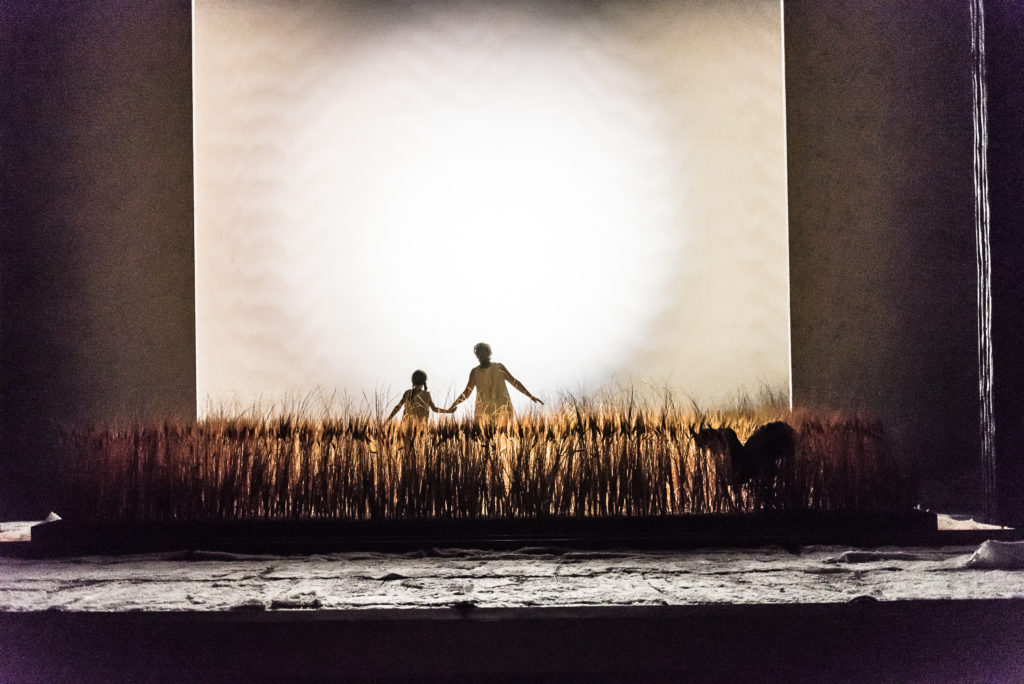
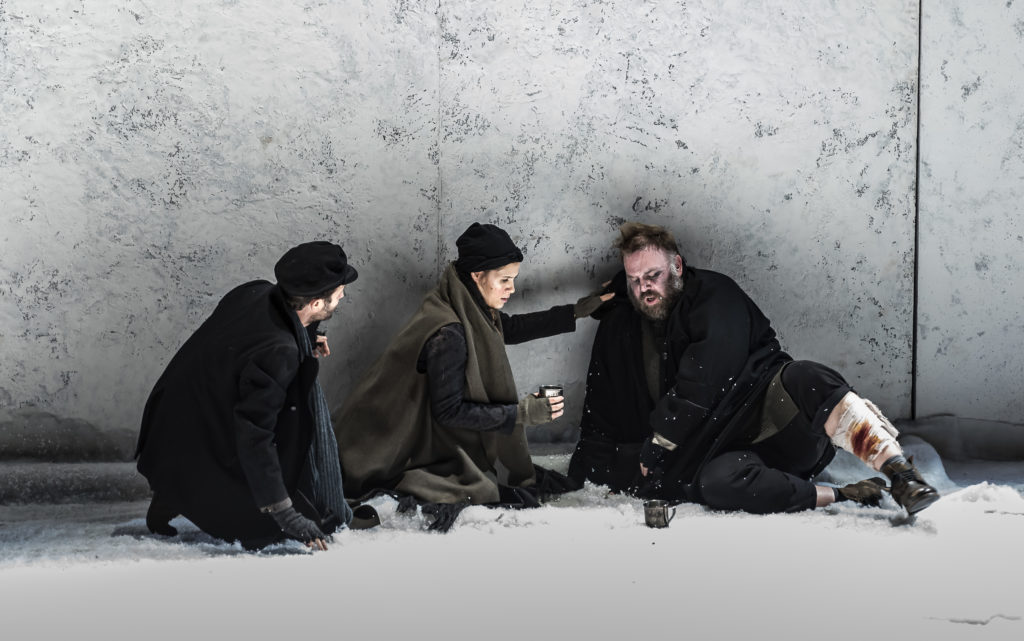
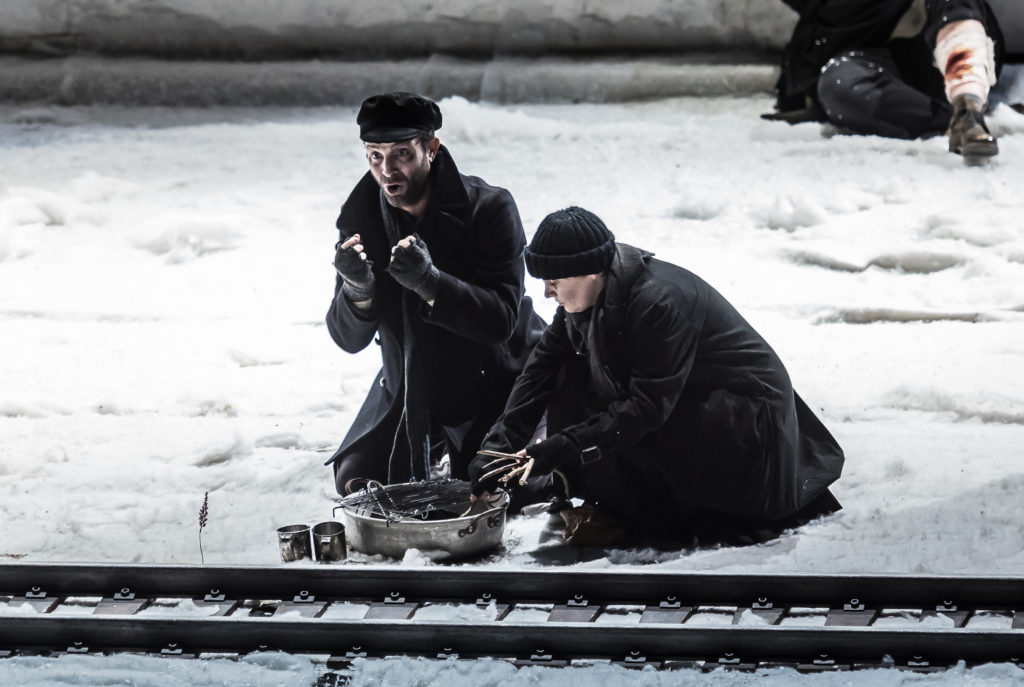
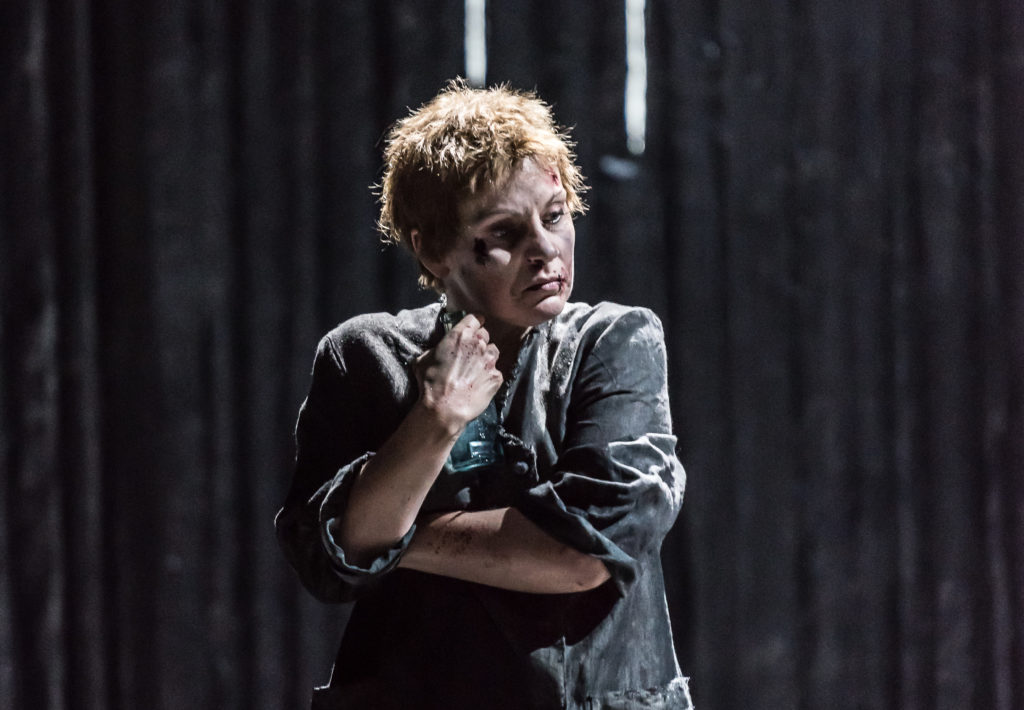
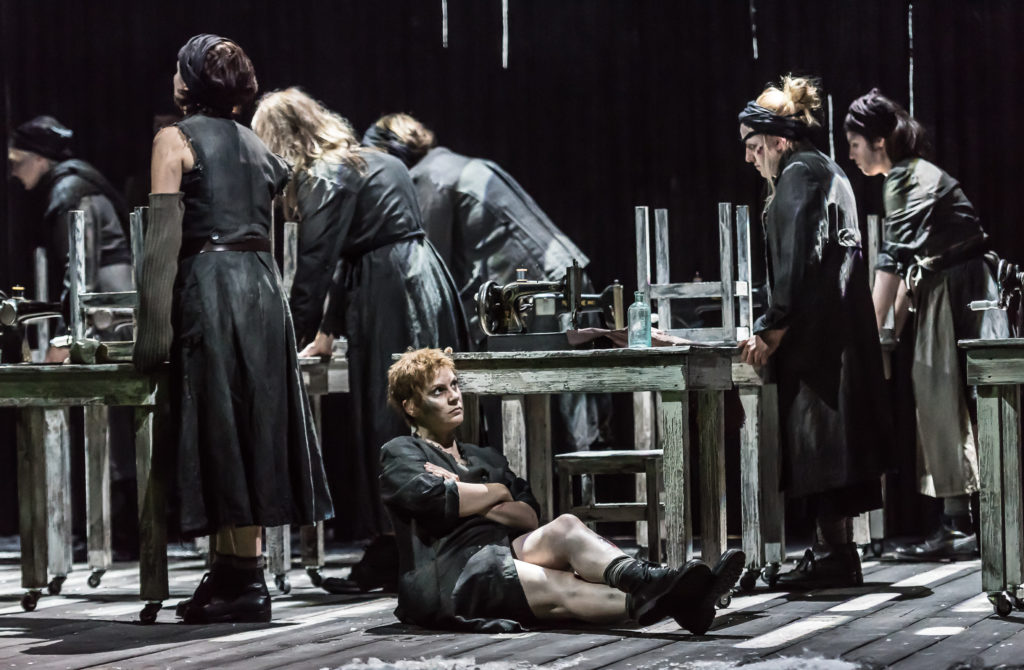
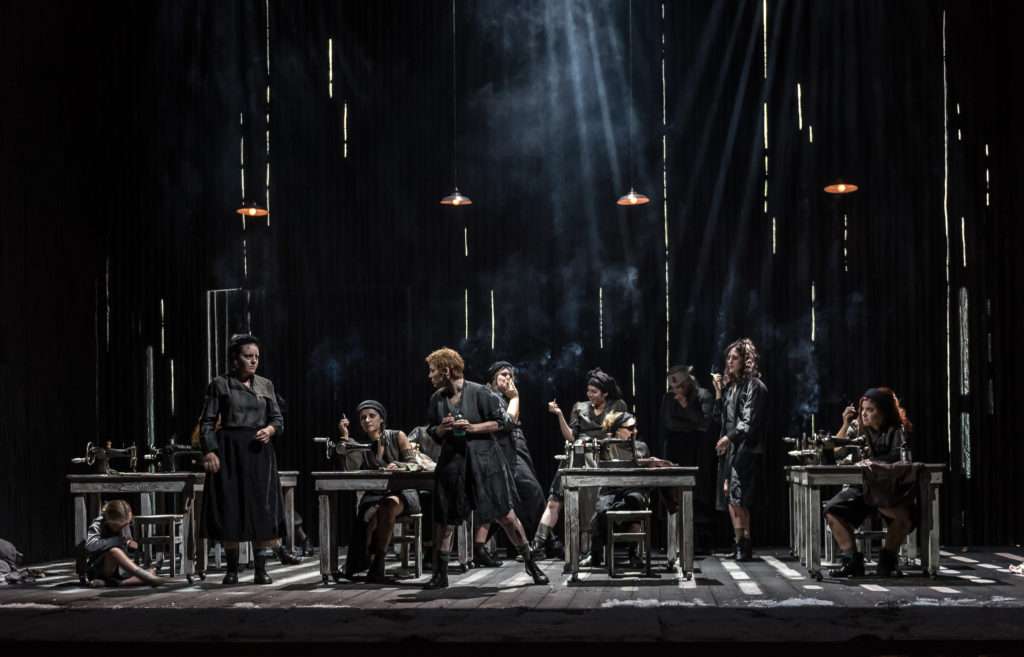
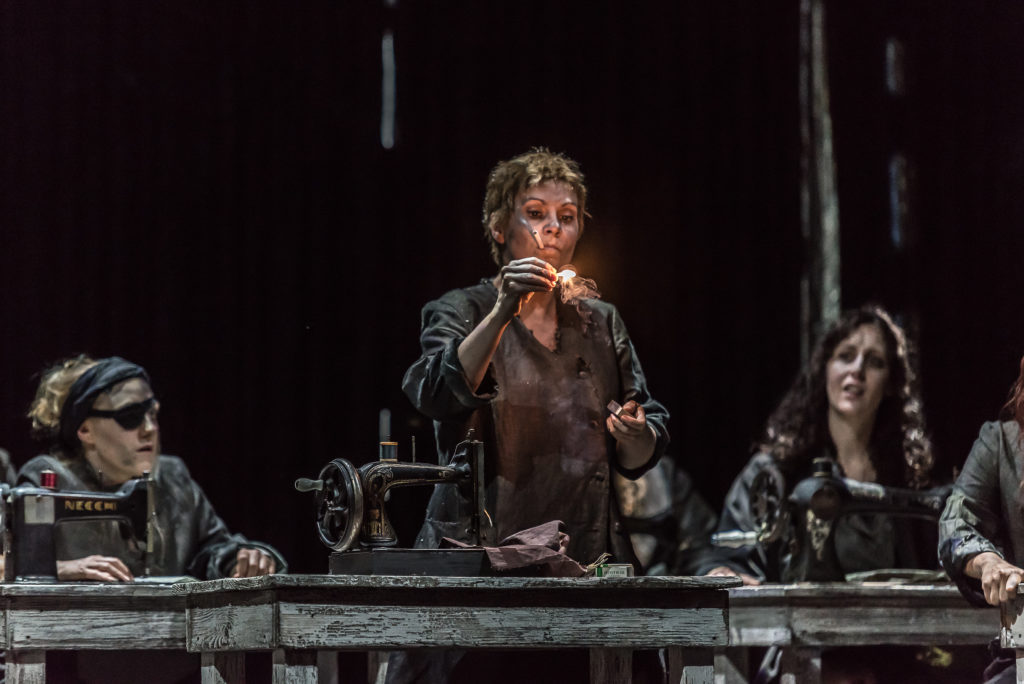
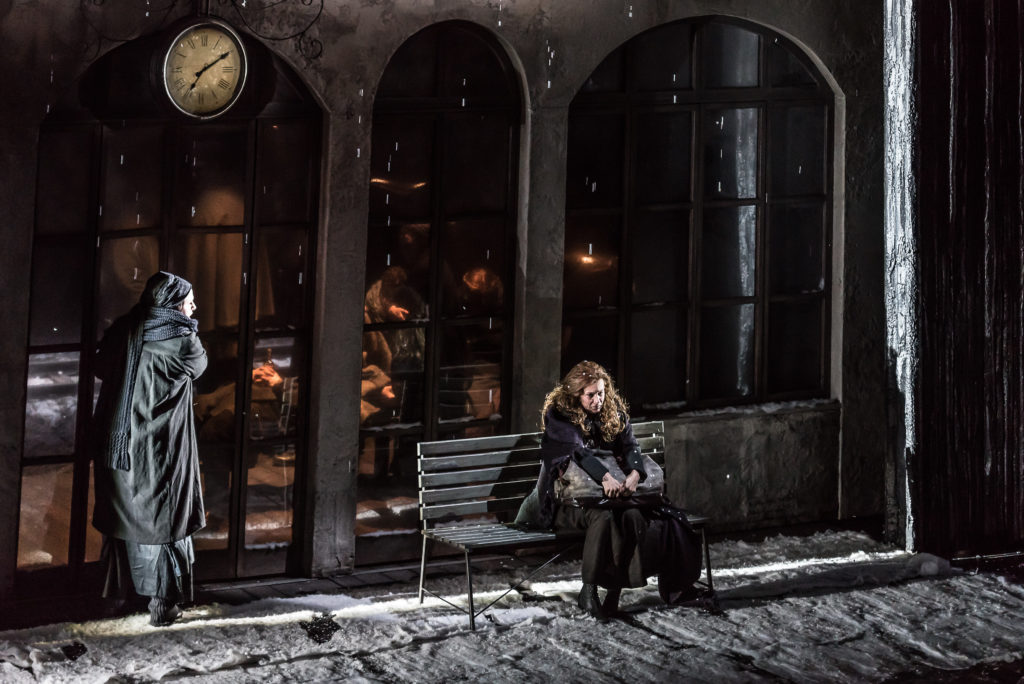
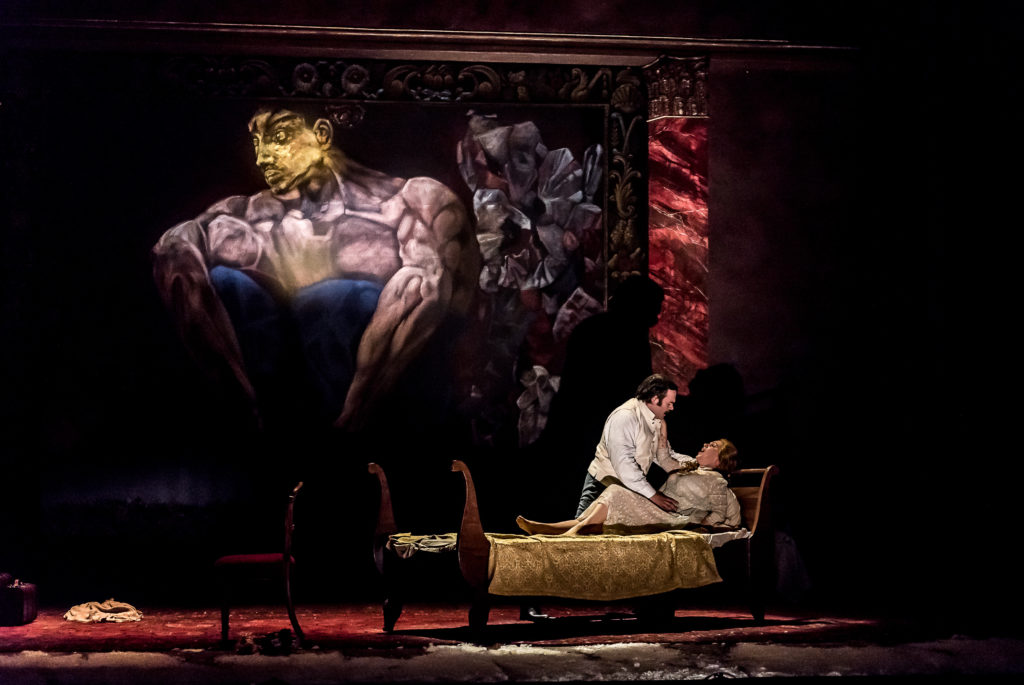
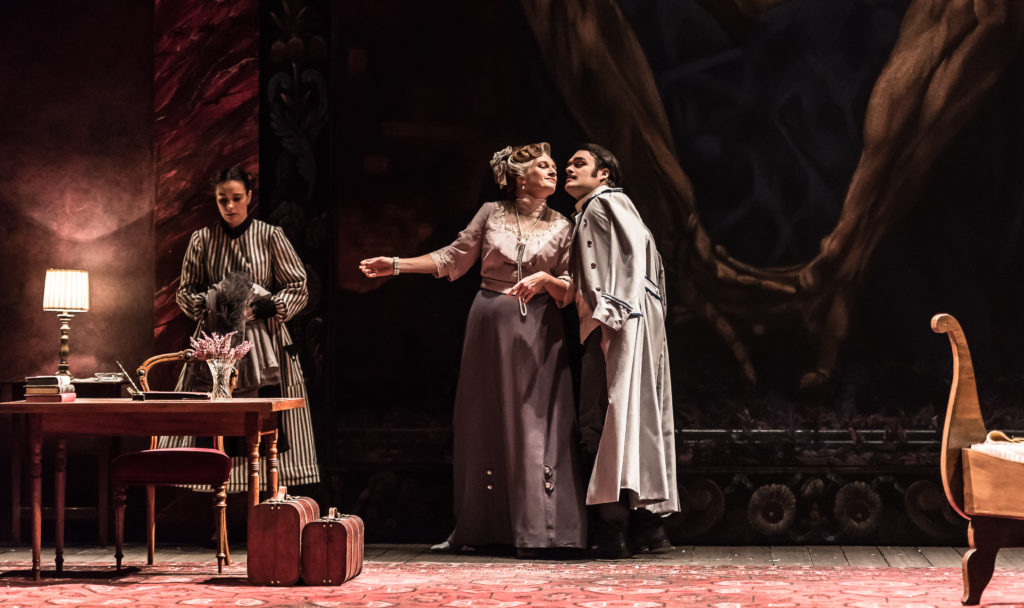
“It is beautifully staged by Rosetta Cucchi, who gets gripping performances from her principals amid stylishly austere sets by Tiziano Santi and lavish period costumes by Claudia Pernighotti…”SUNDAY TIMES
…”But the real crowd-pleaser of this year’s Festival is Risurrezione by Franco Alfano, best known (and routinely slated) for his completion of Puccini’s Turandot. Risurrezione suggests that he deserves better, and this lush, ….The production was sumptuous, with period interiors giving way to the glaring whiteness of Siberia. Director Rosetta Cucchi opted for naturalism, heightened by a discreet sprinkling of fantasy, and Duprels showed again why no one does these abused verismo heroines better..” THE SPECTATOR UK
“…Full marks toRosetta Cucchi’s sensibly directed and attractively designed production…” TELEGRAPH UK
“…In this clear-eyed production by Rosetta Cucchi, to realistic and strongly atmospheric designs by Tiziano Santi and Claudia Pernigotti, Risurrezione certainly makes an impression: the narrative describing the central characters’ dual redemption is undoubtedly moving and is handled here with impeccable skill…” THE STAGE UK
“Director Rosetta Cucchi keeps the drama well focused, and that focus is keenly supported by Tiziano Santi’s sets (including a coup de théâtre at the close) and Claudia Pernigotti’s costumes. Conductor Francesco Cilluffohandles the orchestral surges with aplomb. On the opening night the audience made no secret of the fact that of 2017’s three Wexford operas this was the one they liked best, and by some margin.” IRISH TIMES IRL
“The third of Wexford’s 2017 productions, Franco Alfano’s Risurrezione (1904), was the ‘hit’ of the trio…..The final image offered to us by director Rosetta Cucchi and designer Tiziano Santi — a sun-drenched field of wheat in which Katiusha and her younger alter ego, the embodiment of lost innocence who has shadowed Katiusha throughout the drama, dance with freedom and joy “ OPERA TODAY
“…and Rosetta Cucchi’s production is, on a single hearing difficult to say, so wonderfully did they all perform their roles…..Throughout the performance Cucchi did not miss an opportunity to highlight the brutality and violence that underscored Katiusha’s new world….For anyone who enjoys sentimentality, and this audience certainly did, this was powerful stuff, and they responded by giving all involved a long ovation.” OPERAWIRE USA
“The triumph of the Wexford Festival season was Franco Alfano’s Risurrezione… Risurrezione managed to achieve complete suspension of time…The lion’s share of the credit for its success goes to stage director Rosetta Cucchi…”OPERA NEWS USA
“.. Rosetta Cucchi does a good job with both soloists and the numerous extras, defining the characters and giving meaning to the somewhat confusing plot; the final scene is particularly moving. An excellent production!” SEENANDHEARD INTERNATIONAL
“L’opéra qui apparemment a le plus impressionné le public à en juger la réaction unanime enthousiaste de la salle était « Risurrezione » de Franco Alfano, compositeur italien (1875–1954) surtout connu pour avoir achevé la scène finale de « Turandot » de Puccini. Cet opéra en quatre actes , créé à Turin en 1904 (sous la direction musicale du jeune Tullio Serafin) est basé sur le roman du même nom de Tolstoï et raconte l’histoire de Katiusha, séduite et abandonnée, prostituée et finalement exilée en Sibérie où elle trouve sa rédemption. Rosetta Cucchi avec la collaboration de Tiziano Santi (décors) et Claudia Pernigotti (costumes) a raconté l’histoire d’une façon claire et sobre, donnant juste assez de couleur locale pour la situer dans son contexte. Les scènes à la gare te dans la prison étaient suggestives…” CRESCENDO MAGAZINE (BELGIO)
Die Naturstimmungen, denen Alfano mit schwelgerischen, melodischen Klangfarben Ausdruck verleiht, ohne dass sich eine Melodie herauskristalliert, werden durch Tiziano Santis atmosphärische Bühnendekoration und Rosetta Cucchis fein gezeichnete Inszenierung unterstrichen. Sie beschwören die fürstlichen Gemächer, die Tristesse des Bahnhofes, an dem die verzweifelte Katjuscha hofft, den Fürsten abzufangen, die Brutalität des Gefängnisdaseins und die sibirische Kälte. Alle Augen und Ohren waren im Voraus auf “Medea” gerichtet. “Risurezzione” hat ihr jedoch die Schau gestohlen. GINA THOMAS — FEUILLETTON (GERMANY)
(TRADUZIONE) Gli umori della natura, che Alfano regala con ricca espressione e tono melodico senza causare mai l’impressione di fiori cristallizzati, sono sottolineati dalle scene di Tiziano Santi e dalla regia di Rosetta Cucchi finemente disegnata. Evocano le camere reali, la tristezza della stazione, dove la disperata Katyusha spera di ireincontrare il principe, la brutalità della vita carceraria e il freddo siberiano. Tutti gli occhi e le orecchie erano focalizzati su “Medea” in anticipo. Tuttavia, “Risurrezione” le ha rubato lo spettacolo
“Rosetta Cucchi hace un trabajo concienzudo con los solistas y los numerosos comprimarios y figurantes, delineando muy bien los personajes y dando sentido a la en cierto modo confusa trama. Resuelve muy bien la escena de la estación de tren, haciendo aparecer un vagón al fondo, donde se ve al Príncipe Dimitri con su acompañante femenina. La escena final, mostrando un campo de cereales muy iluminado con la protagonista yendo al encuentro de la aparición de su hijo muerto es conmovedora. Una excelente producción.” OPERAWORLD ES
“Rosetta Cucchi maakte met haar uitstekende regie de belevenis compleet. Ieder gebaar van haar karakters had betekenis en de personenregie was uitmuntend. Ook visueel was de productie prachtig: met kleine middelen werd er door Cucchi en haar decorontwerper Tiziano Santi maximaal resultaat bereikt.” OPERA MAGAZINE- THE NETHERLANDS
(traduz) Rosetta Cucchi ha reso l’esperienza completa con la sua eccellente direzione. Ogni gesto dei suoi personaggi aveva un significato e la direzione delle persone era eccellente. Visivamente, la produzione è stata bella: con piccoli mezzi, Cucchi e il suo scenografo Tiziano Santi hanno raggiunto i massimi risultati.
“La crescita d’interesse e qualità è culminata nel terzo spettacolo del Festival, che ha raggiunto esiti artistici altissimi con Risurrezione di Franco Alfano…Ma non è da escludere che l’effetto qualitativo della partitura, superiore alle aspettative,è stato certamente potenziato dall’intensa regia di Rosetta Cucchi dipanatasi fra le suggestive ambientazioni dello scenografo Tiziano Santi, con i costumi di Claudia Pernigotti: una terna artistica vincente da lunga data, che sa accoppiare l’eleganza di una immagine seducente ma sempre netta e precisa (indimenticabile la scena della stazione ferroviaria) a gesti e movimenti studiatissimi e chiarissimi (culminati nella potenza tragica dell’atto in carcere), che partono ogni volta dalla parola, se non direttamente dalla musica.La trasposizione della vicenda dal medio Ottocento (incombente la Guerra di Crimea, da cui scaturisce l’intera azione) al primo Novecento (come suggeriva una riproduzione del Demone seduto di Vrubel’ campeggiante nella villa del primo atto) dà ancora più forza al gulag siberiano del finale, giustificando l’apoteosi redenzionistica da socialismo reale che strappa letteralmente l’applauso al pubblico come negli ultimi fotogrammi di tanta cinematografia propagandistica: un’apoteosi scenica fatta di luce metafisica che trasfigura un simbolico campo di grano, perfettamente giustificata anch’essa dall’enfasi dell’ultima perorazione orchestrale..” IL GIORNALE DELLA MUSICA





